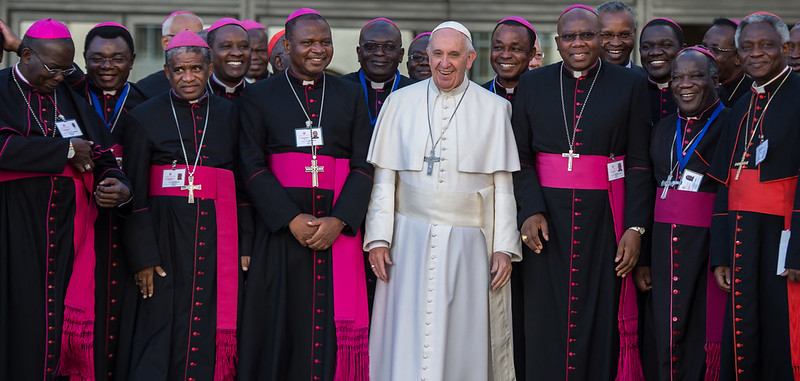As a young Catholic, I see the current synodal process as the most significant and, without question, the most remarkable ecclesial event of my lifetime, which I took part in with fellow Catholics in a small parish in North Yorkshire, England, at the start of Advent 2021.
One could argue that the synodal process is the most revolutionary period in Catholicism since the Second Vatican Council, given that it seeks to permanently integrate innovations into the Church’s life. At the grassroots level, being a part of the synodal process was transformative and powerful for me personally, as it required listening to one another, hearing experiences of faith with all their joys and disappointments, and discovering new ways to strengthen one another, which nourished hope, stimulated trust, mended wounds, woven new and deeper relationships, provided opportunities to learn from one another, and built bridges. The process was inspired by prayer and guided by the Holy Spirit, with the goal of listening to what the Holy Spirit was attempting to communicate via the experiences of other Catholics and sensing what needed to be done. It was a new way of encountering the Church for me, a church that aspired to be a synodal church but had previously existed as a hierarchical communion.
Pope Francis teaches that synodality is a constitutive element of the Church, present at all levels of church life, and since 2013, I've closely observed several remarkable synodal events in Rome, including the Synod on the Family (2014-15), the Synod on the Young people (2018), and the Synod on the Amazon (2019), all of which were dynamic events that reformed the synod of bishops. Now, Pope Francis's most bold initiative to date, the two-year “synod on synodality” which began in Rome on October 9 and spread to dioceses worldwide a week later, is poised permanently to change Christianity.
I would like to focus on what I envision and pray for personally: what kind of Church do I want? Being a person of colour in a largely white-English parish frequently seems alone and detached.
Barriers inevitably arise simply because of the colour of my skin and the unavoidable difference that defines who I am, and the way God has made me becomes a defining characteristic that frequently becomes a barrier to friendship, and it is simply sitting on the church bench and participating in the silently returning home. I did ask myself, if we are all created in the image of God, why are my family and I treated differently and where does the fear originate from, despite the fact that I am a Catholic? This brings me to the question of whether racism exists within the Church and, if so, what should be done about it, both locally and nationally?
The other key point is that openly professing Catholicism in contemporary post-Christian secular Britain is exceedingly difficult and frequently persecutory. When I publicly profess my catholic faith, those with anti-Catholic political views frequently associate me with the Catholic Church’s power structure, which they are fighting and frequently aiming to destroy and bring to its knees. As a result, those individuals will seek to destroy me in the same way they seek to destroy the Catholic Church. For me, it is not about being a Sunday catholic; it is about practising and applying Catholic social principles for the common good. Thus, the question remains as to whether Catholics face persecution in contemporary Britain, and if so, what can we, as a church, do about it.
Finally, I would like to bring it to the point that I have started with synodality in the local Church. I will express my view about the implementing synodality in the local and national Church. The important question is how the people's authority relates to ordinary people like me. From my personal experience, I have tried to reach the people who are in power and hold authority in the Catholic Church in England and Wales and very often, they remain unreachable, and when I communicated through the officials' channel, I was left with unsatisfactory answers and end up with same frustration that I started with. I hope that synodality gets embedded into practice and the walking together and the people in the authority of the Catholic Church in England and Wales make it their priority to continue listening to ordinary people like me.
Because when the Catholic Church's authorities in England and Wales do listen, the effect may be life-changing and encouraging for the recipients, as I witnessed with Cardinal Vincent Nichols, Archbishop Bernard Longley, Bishop Terry Drainey and local priests.
I would like to remind readers that the purpose of the next two years of the synodal process is not a one-time conversion, but rather a permanent conversion. I sincerely hope the conversation will continue.



 Loading ...
Loading ...
What do you think?
You can post as a subscriber user ...
User comments (0)